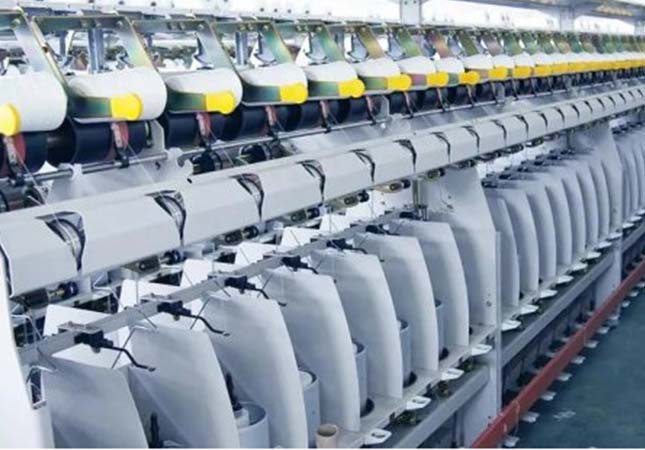Taking the example of modern shuttle-less weaving machines, compared to conventional shuttle looms, where one weaver can manage 24 looms with a daily output of approximately 800 square meters, with the same management of 24 modern jet shuttle-less weaving machines, the daily output can reach around 10,000 square meters, resulting in labor productivity being increased by more than 10 times. In the 1970s, the development of shuttle-less weaving machines was still in its early stages, with a total quantity accounting for less than 5% of all weaving machines. However, by the late 1980s, shuttle-less weaving machines in countries like France, Italy, and West Germany accounted for more than 75% of all weaving machines.

Additionally, the development of nonwoven fabric technology has brought about a revolution in textile processing. This technology involves laying fibers on a network similar to the papermaking process and directly forming the fabric through needle punching, bonding, or fusion, eliminating the cumbersome spinning and weaving processes. This process, actively promoted in developed countries, can significantly increase the production efficiency of the textile industry by several times or even dozens of times.
Overall, these advancements in technology have revolutionized the textile industry by improving automation, quality control, and production efficiency.
Deepening and Expanding Technological Advancements
The processing industry of natural fibers such as silk and hemp, which involves spinning and weaving, is built upon the foundation of an "agricultural-based" processing industry. Since the 1950s, developed countries have invested heavily in the research and development of synthetic fibers, which were still in their infancy, leveraging their technological advantages. This has ushered in a new era of large-scale production of textile fibers through industrialization. This is the birth of the emerging fiber manufacturing sector within the textile industry, providing it with new growth vitality. In 1992, the global production of chemical fibers (21.13 million tons) surpassed that of natural fibers (20.56 million tons) for the first time.
Technological advancements have also greatly expanded the functionalities of the textile industry. In present times, developed countries classify textile products into three categories. Firstly, there are clothing textiles, which are evolving towards functional and healthcare-oriented developments. Secondly, there are decorative textiles, which are moving towards serialization, coordination, and high-end directions, with increased technological content. Lastly, there are industrial textiles, the development of which demonstrates that textile products are entering an entirely new field. For example, carbon fiber, known for its high strength, abrasion resistance, and heat resistance (twelve times stronger and twice as heat-resistant as steel), is being utilized in the manufacturing of high-strength and lightweight high-tech composite materials. These materials are used in the development of next-generation automobiles, aircraft structural components, rocket engines, racing helmets, bulletproof vests, sports equipment, and more. The rise and rapid development of industrial textiles are the results of improved economic and technological levels and the industrialization of high-tech advancements. Industrial fibers and industrial textiles, as new materials, have permeated various industries, significantly enhancing their modernization levels and even fundamentally changing the appearance of certain industry sectors.
Overall, technological progress has not only transformed the textile industry's manufacturing processes but has also expanded its functionalities and applications, leading to the emergence of new fiber manufacturing sectors and the penetration of industrial textiles into various industries.
SUNTECH Textile Machinery has the range of products encompasses almost all fabric types, including but not limited to pinking machine, loom machine, weaving machine, beam truck, fabric cutting machine, motorized beam trolley, beam storage, and fabric inspection machine. SUNTECH Textile Machinery continues to lead the textile industry with our innovative approach and extensive experience. Welcome quotes and cooperation opportunities from you!




